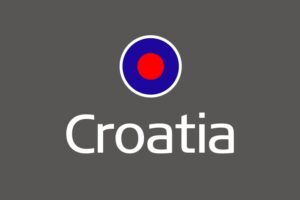Croatia introduces paternity leave entitlement
 Croatia recently passed new legislation to align better with the European Union Directive 2019/1158 of June 20, 2019, on work-life balance for parents and carers. The new legislation came into effect on August 1, 2022.
Croatia recently passed new legislation to align better with the European Union Directive 2019/1158 of June 20, 2019, on work-life balance for parents and carers. The new legislation came into effect on August 1, 2022.
The directive promotes equality between men and women and addresses the underrepresentation of women in the labor market by establishing rights to paternity and parental and caregiver leave. EU member states had a three-year transition deadline which ended in August 2022.
Since the Croatian legislation already includes many provisions that the Directive prescribes, the most significant change introduced by the new amendment is the introduction of a paternity leave entitlement.
“This legislation’s primary goal is to give parents and people who care for others a way to coordinate business and private obligations more easily and concretely. In addition, fathers can be more involved in childcare and participate in the child’s early years,” says Asinta Partner Natalia Zaborovska of MAI CEE.
The new entitlement is for employed and self-employed parents and lasts ten working days for one child, or 15 working days in the case of the birth of twins, triplets, or simultaneous birth of several children. The leave is available until the child is six months old, and the father can use it regardless of the mother’s employment status.
During such leave, fathers receive their full monthly pay, as do mothers on maternity leave, at the expense of the state budget, not the employer.
The state set aside HRK 91 million (€12 million) for paternity leave this year and HRK 273 million (€36.4 million) on an annual basis as of next year.
Paternity leave is not mandatory, but if a father wants to take it, his employer must allow it or face fines ranging from HRK 10,000 to 50,000.
Zaborovska adds, “It remains to be seen whether the amendments will indeed contribute to improving the work-life balance of working parents and increase the number of fathers taking advantage not only of the newly introduced paternal leave but parental leave in general.”
The state regulates this benefit, so insurers and brokers cannot help manage it for employers.
MAI CEE, Asinta’s employee benefits consulting Partner in Croatia, provided this article.
